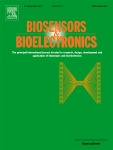 PubPeer will see a surge of more than 50,000 entries for psychology studies in the next few weeks as part of an initiative that aims to identify statistical mistakes in academic literature.
PubPeer will see a surge of more than 50,000 entries for psychology studies in the next few weeks as part of an initiative that aims to identify statistical mistakes in academic literature.
The detection process uses the algorithm “statcheck” — which we’ve covered previously in a guest post by one of its co-developers — to scan just under 700,000 results from the large sample of psychology studies. Although the trends in Hartgerink’s present data are yet to be explored, his previous research suggests that around half of psychology papers have at least one statistical error, and one in eight have mistakes that affect their statistical conclusions. In the current effort, regardless of whether any mistakes are found, the results from the checks are then posted to PubPeer, and authors are alerted through an email.
Till now, the initiative is one of the biggest large-scale post-publication peer review efforts of its kind. Some researchers are, however, concerned about its current process of detecting potential mistakes, particularly the fact that potentially stigmatizing entries are created even if no errors are found. Continue reading Here’s why more than 50,000 psychology studies are about to have PubPeer entries

 The Leiden University Medical Center (LUMC) has asked a journal to retract two papers after revealing a former employee manipulated data.
The Leiden University Medical Center (LUMC) has asked a journal to retract two papers after revealing a former employee manipulated data.





